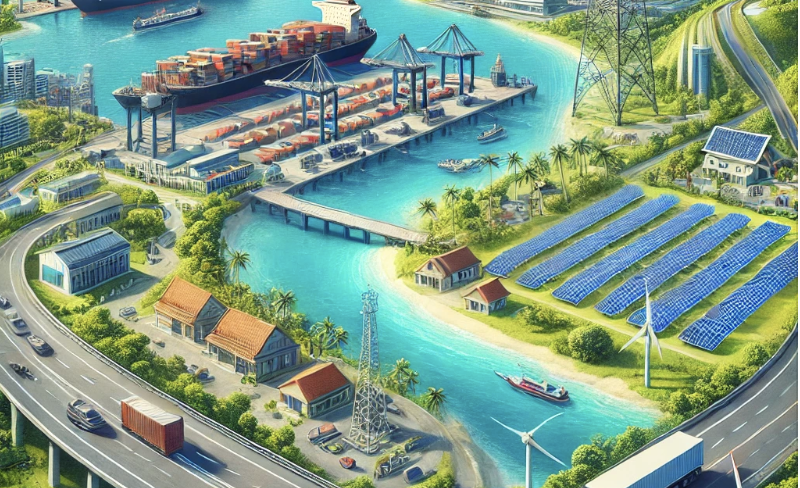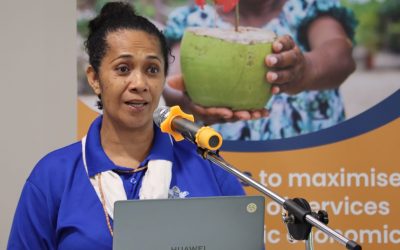The Australian Infrastructure Financing Facility for the Pacific (AIFFP) has released its Annual Update for FY 2023-24, highlighting a shift from project origination to implementation across the Pacific and Timor-Leste. As of 30 June 2024, AIFFP had committed AUD 2 billion across 28 infrastructure projects spanning 11 countries, with a focus on transportation, energy, and climate resilience.
A key highlight of the year was the expansion of AIFFP’s climate resilience efforts, driven by the Pacific Climate Infrastructure Financing Partnership (PCIFP), which is injecting AUD 350 million into renewable energy and climate adaptation projects. Notable initiatives include solar energy solutions for remote communities, renewable power for healthcare facilities, and off-grid electrification for rural areas.
Infrastructure development in transportation remained central to AIFFP’s investments. Projects included the completion of the Nui Harbour upgrade in Tuvalu, critical upgrades at Tonga’s Queen Salote International Port, and the rehabilitation of Solomon Islands’ Tulagi Shipyard. Meanwhile, road and bridge upgrades in Fiji improved connectivity, and work progressed on the maintenance of the Wau Highway in Papua New Guinea.
The AIFFP also invested in telecommunications infrastructure, including submarine cable projects in Palau, Timor-Leste, and across the Federated States of Micronesia, Kiribati, and Nauru. These projects aim to improve internet connectivity, supporting economic growth and digital access across the region.
Energy sector investments were another priority, with AIFFP backing projects such as Palau’s first utility-scale solar power plant and key electricity transmission upgrades in Solomon Islands and Papua New Guinea. A USD 150 million package was also announced to refurbish PNG’s Ramu 1 hydropower plant and expand power distribution.
AIFFP’s commitment to sustainable development is reflected in its emphasis on local job creation and community benefits. Close to 700 jobs were created through its projects, while local firms were engaged in construction and service delivery. The facility also prioritised social and environmental safeguards, gender inclusion, and disaster resilience, ensuring that projects meet international standards.
As AIFFP continues its focus on project delivery, its investments are playing a vital role in building resilient infrastructure across the Pacific. With a strong pipeline of climate and economic development projects, AIFFP remains a key player in strengthening Australia’s engagement in the region.
Download the report here.
[Representative illustration]



